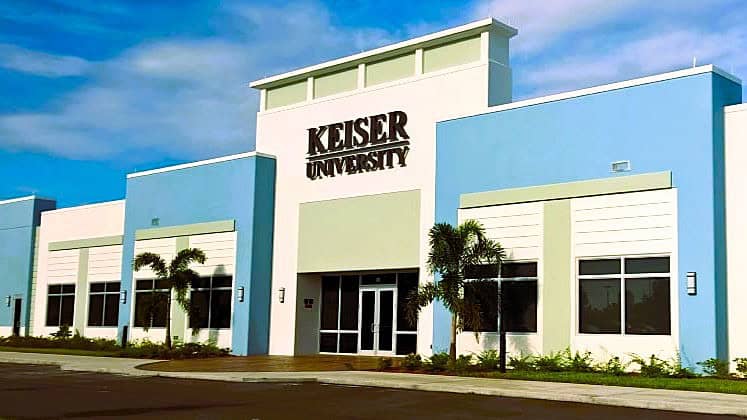Choosing the right university is a critical decision that involves careful consideration of multiple factors. For most students and families, cost is a primary concern. Keiser University, a private, career-focused institution, stands out with its unique educational model. This comprehensive guide will explore the costs associated with Keiser University, including tuition, fees, financial aid options, and the potential return on investment of its specialized degree programs.

Understanding Keiser University
Founded in 1977, Keiser University is a prominent private, non-profit institution that emphasizes career-oriented education. Unlike traditional universities, Keiser focuses on providing specialized degree programs that directly align with industry needs, particularly in fields such as healthcare, business, criminal justice, and technology.
Institutional Characteristics
- Private, non-profit educational institution
- Multiple campus locations throughout Florida
- Offers associate, bachelor’s, master’s, and doctoral degree programs
- Strong focus on career preparedness and practical skills
Tuition Breakdown: What Makes Keiser University Unique
Comprehensive Cost Structure
The total cost of attending Keiser University involves several components beyond basic tuition. Students should consider:
- Tuition Rates
- Undergraduate programs: Approximately $531 per credit hour
- Graduate programs: Range from $576 to $665 per credit hour
- Specialized programs might have different rate structures
- Additional Fees
- Technology fees
- Laboratory fees (for science and healthcare programs)
- Course-specific materials and equipment charges
- Registration fees
- Student service fees
- Program-Specific Expenses
- Different programs have varying cost structures. For instance:
- Healthcare programs often have higher associated costs due to specialized equipment and clinical requirements
- Technology and business programs might include software licensing fees
- Criminal justice programs could have additional training or simulation expenses

What Division is Keiser University?
Keiser University operates as a private, non-profit institution in the NCAA Division II athletic conference. This classification applies to its intercollegiate sports programs, which include:
- Men’s and Women’s Basketball
- Baseball
- Softball
- Soccer
- Cross Country
- Golf
The Division II status allows the university to compete at a competitive collegiate level while maintaining a balance between athletics and academics.
Does Keiser University Have Dorms?
Keiser University offers limited on-campus housing options:
- The main campus in West Palm Beach provides some student housing
- Not all campuses have residential facilities
- Many students opt for nearby off-campus housing
- University assists in connecting students with local housing resources
- Online and commuter students typically arrange their living arrangements
Keiser University Nursing Program Details
Program Length and Structure
- Associate of Science in Nursing (ASN): 2 years
- Bachelor of Science in Nursing (BSN): 4 years
- Accelerated BSN for transfer students: Approximately 16-24 months
- Master of Science in Nursing (MSN): Additional 2-3 years
Program Highlights
- State-of-the-art simulation laboratories
- Clinical rotation opportunities
- NCLEX preparation integrated into the curriculum
- Multiple specialization tracks are available
Salary for Regional Director at Keiser University
Regional Director salaries typically range:
- Average annual compensation: $85,000 – $120,000
- Varies based on:
- Campus location
- Years of experience
- Specific responsibilities
- Educational background
Factors influencing salary include administrative duties, student enrollment management, and institutional performance metrics.
Keiser University Careers and Jobs
Career Opportunities
- Academic Positions
- Faculty members
- Department chairs
- Program directors
- Research associates
- Administrative Roles
- Admissions counselors
- Financial aid advisors
- Student services staff
- Campus administrators
- Support Positions
- IT support
- Library services
- Marketing and recruitment
- Career services
Keiser University Graduation Rate
Statistical Overview
- Overall graduation rate: Approximately 65-70%
- Varies by program and student demographics
- Factors influencing graduation:
- Small class sizes
- Personalized academic support
- Career-focused curriculum
- Flexible learning options

Comparative Context:
- National average for private universities: Around 58%
- Keiser performs above the national average in student completion
Keiser University Acceptance Rate
Admission Statistics
- Acceptance rate: Approximately 70-75%
- Holistic admission process considering:
- Academic background
- Professional experience
- Personal statements
- Specific program requirements
Admission Flexibility:
- Multiple start dates
- Rolling admissions
- Supportive for non-traditional students
- Transfer credit evaluation
Comparing Keiser to Other Institutions
When evaluating whether Keiser University is “expensive,” it’s crucial to compare it with similar private and career-focused institutions:
Private University Comparison
- Average private university tuition: $35,000 – $50,000 annually
- Keiser University annual tuition: Approximately $22,000 – $30,000
- Specialized program costs can vary significantly
Value Proposition
While the sticker price might seem high, Keiser offers several unique value factors:
- Smaller class sizes
- Focused, career-aligned curriculum
- Flexible learning options (online and in-person)
- Strong industry connections
- Accelerated degree completion paths

Financial Aid and Affordability Options
Federal Financial Aid
- FAFSA eligibility
- Federal Pell Grants
- Direct Subsidized and Unsubsidized Loans
- Federal Work-Study programs
Keiser-Specific Financial Support
- Institutional Scholarships
- Merit-based scholarships
- Need-based grants
- Program-specific financial assistance
- Payment Plans
- Flexible monthly payment options
- Interest-free installment plans
- Customized financial planning support
- Veterans Benefits
- GI Bill acceptance
- Military tuition assistance
- Special veterans’ scholarships
Return on Investment (ROI)
Career Outcomes
- High job placement rates (around 80-90% in many programs)
- Strong industry partnerships
- Practical, skills-focused education
Salary Potential by Program
- Healthcare
- Nursing: $70,000 – $90,000 annually
- Medical Technology: $55,000 – $75,000
- Healthcare Administration: $60,000 – $80,000
- Business
- Business Administration: $50,000 – $70,000
- Management: $55,000 – $75,000
- Accounting: $55,000 – $75,000
- Technology
- Computer Science: $65,000 – $85,000
- Cybersecurity: $70,000 – $95,000
- Information Technology: $55,000 – $75,000
Factors Influencing Overall Cost
Program Selection
- Shorter degree programs can reduce total educational expenses
- Online programs might offer cost savings on housing and transportation
- Accelerated tracks can minimize overall tuition investment
Learning Modalities
- Traditional on-campus learning
- Hybrid programs
- Fully online degree options
- Each modality has different cost implications
Cost-Saving Strategies
- Early Application and Scholarship Hunting
- Apply early for institutional scholarships
- Maintain strong academic performance
- Explore external scholarship opportunities
- Transfer Credit Optimization
- Evaluate prior learning assessments
- Transfer compatible credits from community colleges
- Reduce total credit hours required for graduation
- Employer Tuition Reimbursement
- Many employers offer educational benefits
- Explore company-sponsored education programs
- Negotiate tuition support as part of employment packages
Conclusion: Is Keiser University Expensive?
The answer depends on individual perspectives and educational goals. While Keiser University’s tuition is higher than public institutions, it offers a specialized, career-focused educational experience with strong potential for immediate employment and career advancement.
Prospective students should:
- Conduct thorough research
- Compare program costs and outcomes
- Consider long-term career potential
- Evaluate the personal financial situation
- Explore all available financial aid options
Final Recommendation
Keiser University represents a strategic investment in your professional future, offering targeted education with demonstrable career benefits.
Visit Blogsweneed for more Blogs, News, and articles like this.

Hi, I’m Nathan Cross, a writer and avid reader who loves crafting articles for newspapers and online platforms. Words are my passion, whether I’m telling stories, sharing insights, or sparking conversations. When I’m not writing, you’ll find me lost in a book or out on the baseball field, enjoying the game that keeps me grounded. Writing, reading, and baseball—these are the things that define me.




